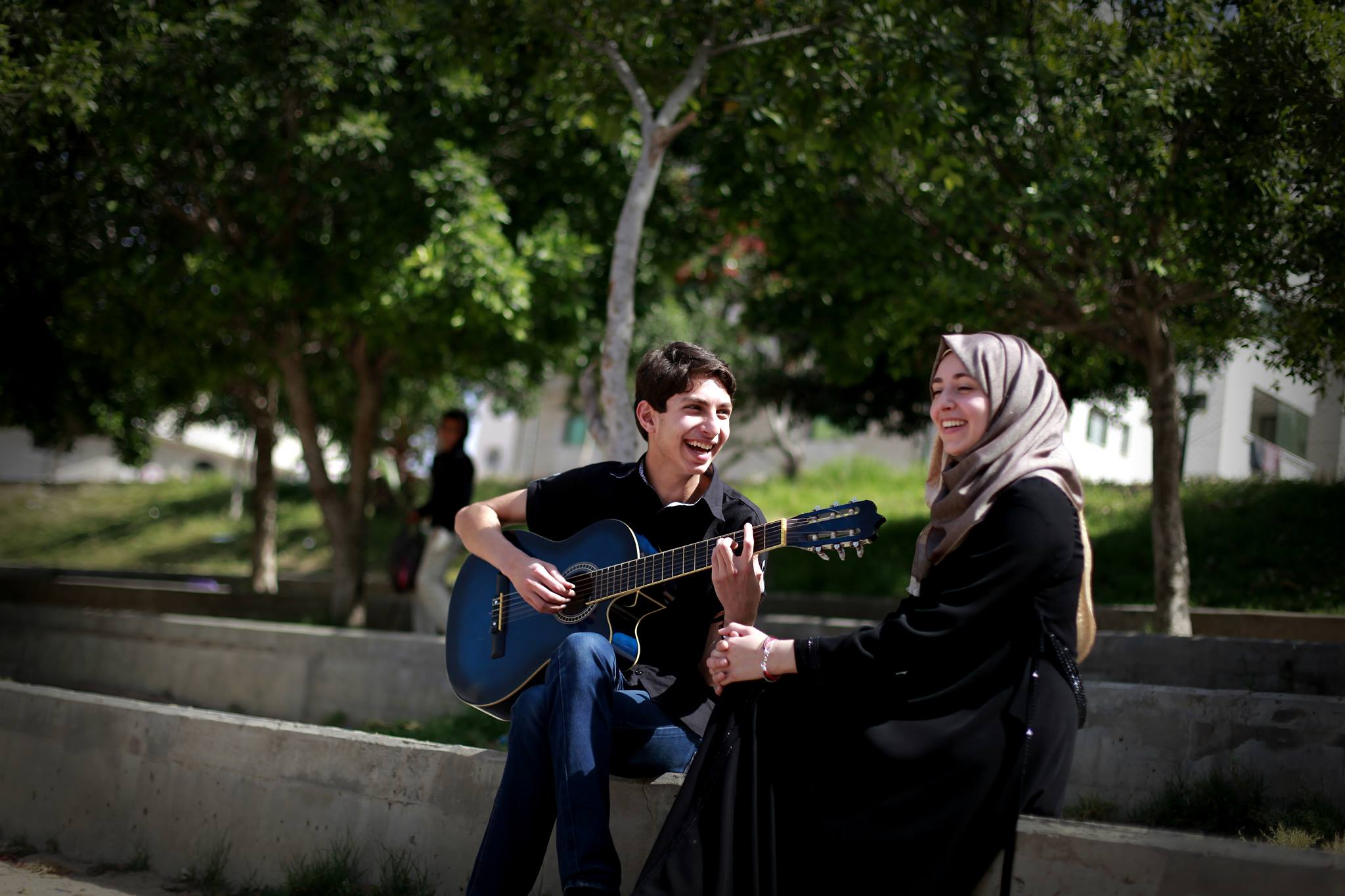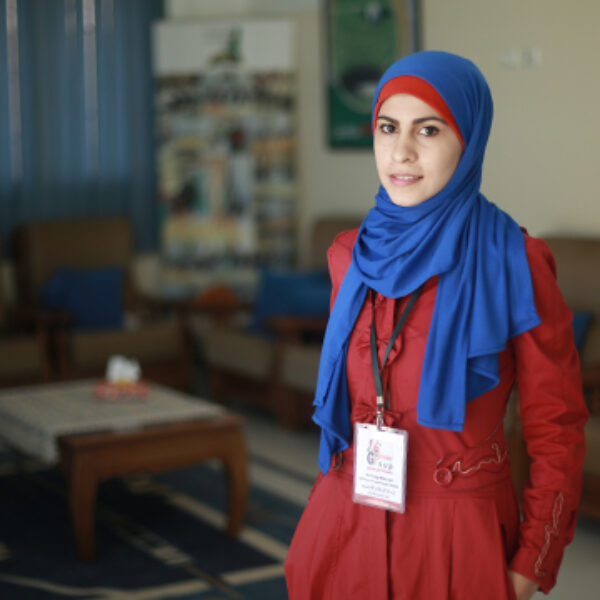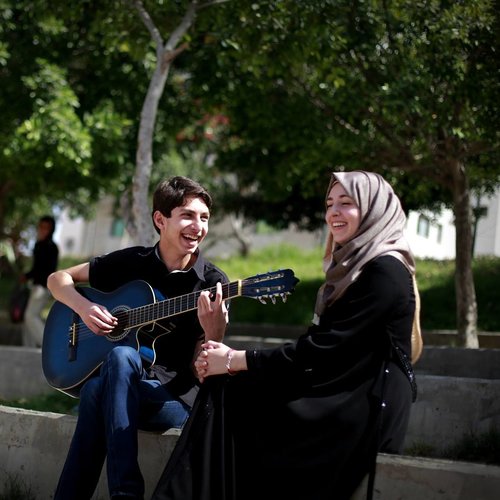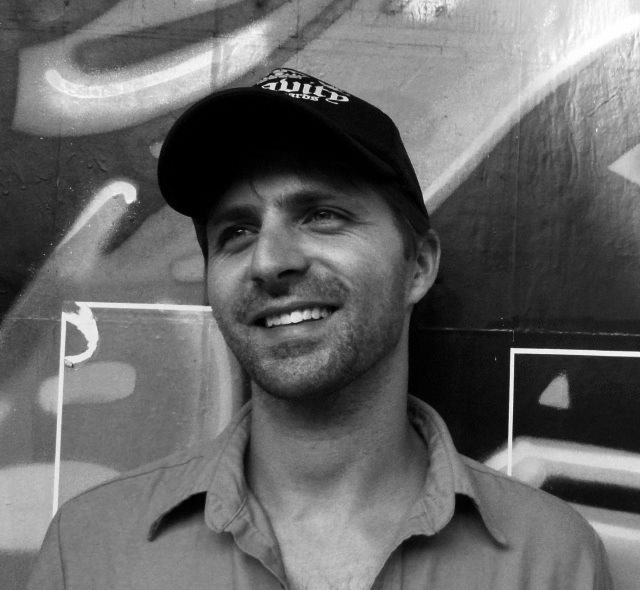Once Ghada Shoman, 20, and her brother Mohammed, 16, began playing music, their songs flew through the sky as if seeking the peace missing from their lives. But lately their music has become so much more.
"Now my voice and my brother's guitar are our ‘weapons,’" Ghada says, staring out to what lies beyond the horizon. “During the last offensive on Gaza (in the summer of 2014), the resistance was inspired by national songs of bravery and a vision of future freedom. And now, so are we."
Ghada and Mohammed are teenage freedom fighters who have found their own way to resist by inspiring and waking the minds of their listeners. The repeated assaults and stifling oppression have taught them to live life with one foot in the grave and the other poised to leap to the sky. The brother and sister were raised in Gaza City to a family of five sisters and two brothers, but they are the only ones who have shown and pursued a natural talent for music. Ghada, who is studying pharmacy in university, sings beautifully without training; Mohammed has taken guitar lessons at the Edward Said Institute for Music Education for the past three years. Last year, the high school student won a championship held for guitar players from both Gaza and the West Bank. And while at first they were worried about how the conservative, resource-starved society of Gaza would react to their children’s pursuit of music, their parents now are proud.

"Songs make miracles," Mohammed believes. He insists his fingers will not play any music except Palestinian national songs, because the resistance has inspired him and his sister to sing only for their homeland. Their homeland, my homeland, is where people die twice: once when their lives are taken by the crimes of their oppressors, and again as they lie in their graves [the Israeli army often bombs graves of Palestinians].
When I visit Ghada and Mohammed, I often ask them to move to the neighborhood garden, located in front of their house, and sing. Their songs evoke images of nature and children, terror and longing, with melodies that literally occupy the air. My heart stills and chills when a sad tune recalls smiles abruptly erased from children's faces at the sound of sirens of ambulances, bombs and screams.
I was lucky to hear them sing the national anthem of Palestine, "Fedayeen warrior" (in Arabic: Fida'i). The song made my cheeks slick with tears, sliding from my tightly shut eyes. A deep sigh escapes from Ghada's lips as if she is hearing the moans of her people. Ghada has plenty of dreams, but most of them cannot come true due to the blockade. Instead, she says, “I have wings in my mind that help me soar and fly to places where the Israeli army cannot catch me.” She points to her throat, her voice. "This is my bullet," she says.











